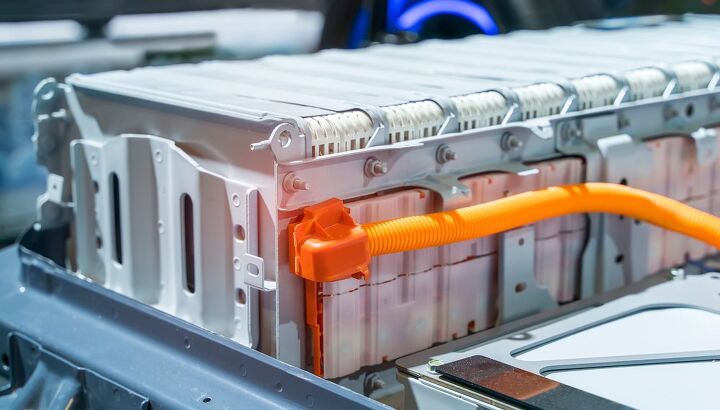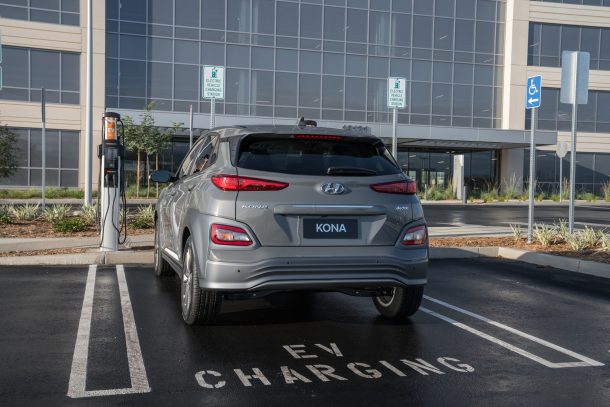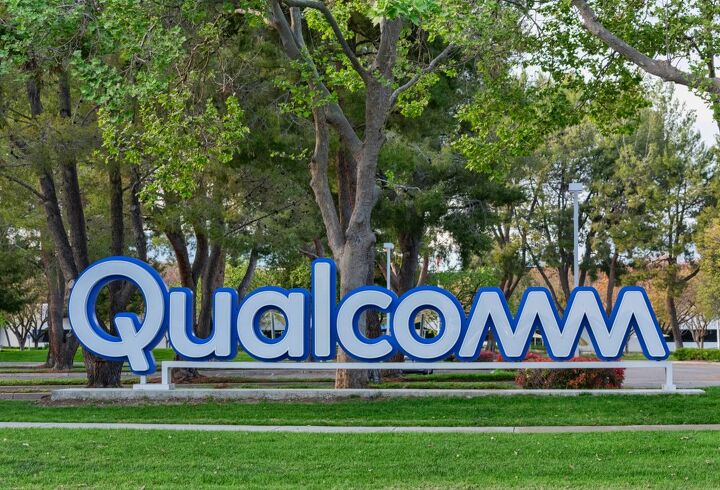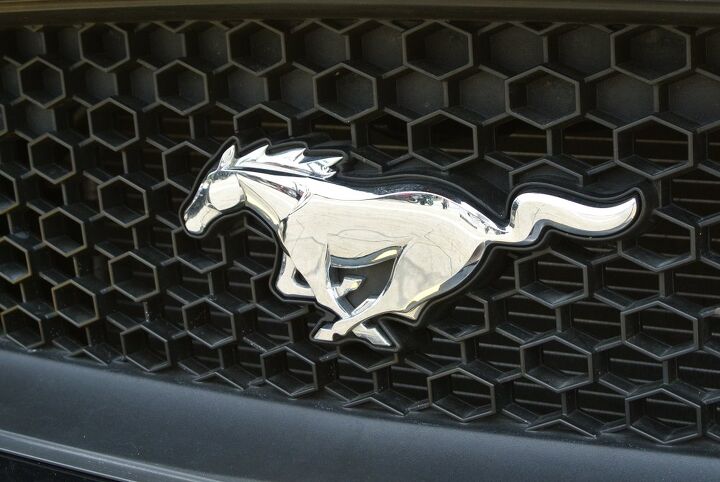#lawsuits
South Korean Battery Firms Reach Settlement, Georgia Factory Approved
It looks like the White House won’t be needing to take any action in response to the International Trade Commission’s decision on how to handle the feud between South Korea’s LG Chem and SK Innovation. The duo has reached a settlement that would allow the former battery manufacturer to complete assembly on its $2.6-billion plant located in Georgia.
LG alleged that SK had stolen intellectual property and the ITC was backing punitive measures that would have forbade the latter company from importing certain lithium-ion batteries into the United States under a 10-year exclusion order. While exemptions were made for the components necessary to manufacturer them in the country, the arrangement was tied to SK’s existing orders and limited to just 4 years. The settlement gives SK additional leeway and prevents Joe Biden from having to consider the possibility of blocking the ITC decision as a way of maintaining American jobs.
Tesla Lawsuit Against Rivian Moves Forward in California Superior Court
The lawsuits continue against EV startup Rivian. Though it hasn’t built any vehicles to date, the company has an aggressive plan to manufacture its “Tesla killer” vehicles at the former Diamond Star Motors plant at Normal, Illinois, and sell its wares directly to customers via nine showrooms across the nation. Various parties take issue with both the building and selling facets at Rivian, and the company has lawsuits with dealers in Illinois as well as Tesla.
Ford CEO Asks Battery Suppliers to Stop Fighting
Battery suppliers LG Chem and SK Innovation have what could be politely described as an intense rivalry. With the automotive industry desperate to secure reliable access to the most essential components for the planned electric vehicle offensive, chemical companies specializing in electronics are very much in demand and they’re all jockeying for power.
On Wednesday, the U.S. International Trade Commission (ITC) sided with LG Chem after it had accused SK Innovation of misappropriating trade secrets pertaining to EV battery technologies. But Ford CEO Jim Farley is asking the South Korean businesses to call a ceasefire and settle things out of court, presumably through the transfer of a large sum of money.
California Wins the Gas War, Fickle Automotive Coalition Realigns Position
The Coalition for Sustainable Automotive Regulation (CSAR) is officially withdrawing from a lawsuit between California and federal authorities over the coastal state’s ability to establish its own emissions standards. California leadership had vowed to ignore the Trump administration’s proposed rollback and began making binding side deals with automakers (specifically BMW, Ford, Volkswagen, Volvo, and Honda) committed to adhering to the aggressive limits established under President Obama. Unfortunately, this ran the risk of undermining the revised national standards penned shortly after the United States became energy independent. It also set up the CSAR to embrace any entity that had views conflicting with California Air Resources Board.
Federal concerns were that the Golden State setting its own targets would butt heads with the relaxed national benchmarks and ultimately divide the U.S. market and may even influence the types of vehicles that were manufactured for all of North America. But the issue became moot once President Biden broke the record for executive orders by signing 22 in his first week. Predictably, the brunt of these were designed to instantly undo any actions taken throughout the duration of the Trump administration and included one directing the Department of Transportation and EPA to reconsider the 2019 decision to remove California’s authority to limit tailpipe emissions by April and revise the fuel-efficiency standards for automobiles by summer.
Pennsylvania Dealer Group Accused of PPP Fraud, Extorting Cash From Staff
When the United States announced it would be offering payroll relief to the countless small businesses it impacted with government shutdowns intended to combat COVID-19 earlier this year, everyone breathed a sigh of relief into their mask. Unfortunately, the Paycheck Protection Program (PPP) became a confusing bureaucratic mess almost instantly. It wasn’t clear how companies would account for part-time or contracted employees, numerous banks denied help to those with less than stellar financial histories, and the application website repeatedly crashed — which was awful for a service that was designed to accommodate candidates on a first-come-first-serve basis.
There were also numerous provisions that allowed big business to take advantage if their individual locations were small enough and loopholes for companies that weren’t even required to shut down operations. Criticisms understandably began to surface, followed by months of commercials asking concerned citizens to report instances of fraud. One such example came into focus this week after a former sales representative for a Pennsylvania-based dealership group launched a federal lawsuit against their ex-employer alleging that it had violated the False Claims Act in relation to PPP.
Automakers Continue Battling Right to Repair Laws in Massachusetts
Despite Massachusetts voters approving a ballot initiative giving customers and independent repair shops more access to the massive amount of data being tabulated by modern cars by a sizable margin, automakers haven’t given up their unpleasantly consistent opposition to the right-to-repair movement. Backed by consumer advocates, unaffiliated repair shops, the aftermarket community, and those interested in D.I.Y. projects, the movement has made meaningful headway in MA under the updated laws. Vehicles that collect and transmit information back to the automaker manufactured for 2022 (or later) model year are now required to be paired with a standardized open-access data platform accessible by owners and anyone else they feel should have access.
But the automotive industry continues to claim these mandates would be impossible to comply with on such a short timeline and has launched a federal lawsuit that the revised rules create a massive security risk in terms of customer privacy and vehicle safety. We’re inclined to believe this is an easy way for legacy automakers to buy time so they can ultimately find ways of not adhering to the updated laws so they can continue benefiting from being the sole purveyor of the data. But we’re willing to entertain their case before making any final rulings — not that it will have any impact on the official case.
Hyundai Being Sued Over Kona Electric Fires, LG Chem on Deck
Hyundai Motor Co. is being sued over a series of battery fires in its electric vehicles in Asia — specifically in relation to the otherwise-enjoyable Kona EV. Though it hardly seems fair to single out Hyundai when General Motors recently issued a recall encompassing 68,677 electric vehicles with batteries manufactured by LG Chem. Interestingly, Hyundai’s 74,000-strong Kona recall (which includes 11,082 units sold to the United States and Canada) uses the same supplier.
EV fires have become a hot topic within the industry, specifically because it runs the risk of slowing adoption rates and makes the affected automaker look wildly inept. Lawsuits don’t help the matter but Hyundai’s more immediate concerns involve proving that LG is the one that screwed up. While it hasn’t pointed any fingers directly at the supplier, it has dropped subtle hints while LG Chem insists its products are not defective. The duo is reportedly collaborating on an internal investigation into the troubled vehicles — 16 of which have burst into flames in North America, Europe, and Asia.
GM Files State Lawsuits Against FCA Over Racketeering Claims
General Motors refuses to let the dismissal of its federal racketeering case against Fiat Chrysler Automobiles stand in the way of getting what it believes is true justice. On Monday, the automaker filed its latest claim with Wayne County Circuit Court in Michigan. These are separate from the New Jersey lawsuit it has targeting former board member and ex-UAW vice president Joe Ashton, who GM has accused of being a hired mole. However, Ashton was named in the trio of new court filings, along with Alphons Iacobelli — the man who pled guilty to embezzling union funds and kicked off a gigantic federal corruption investigation into the UAW.
The automaker also named some of the banks it claimed were involved in the union scandal and continues to allege that FCA “provided millions of dollars to co-conspirators via numerous undisclosed offshore bank accounts and utilized such accounts to purchase the support and silence of numerous high-level UAW officers and FCA executives.” Fiat Chrysler’s assumed goal? Forcing General Motors into a merger or destroy it if the merger failed by negotiating favorable terms with the union and encouraging leadership into adopting positions that would harm GM.
Cash in Your Chips: Automakers Ask FTC to Seek Appeal After Losing Qualcomm Case
Frequently on the cutting edges of technology, the automotive industry has been slamming chips into vehicles to facilitate communications ever since General Motors launched OnStar back in 1996. This evolved into cars boasting reliable navigation systems and remote vehicle diagnostics until they literally started becoming mobile internet hot spots.
Now the industry wants to further ingrain connectivity by equipping all vehicles with 5G — opening the road for new features and the ability to harvest your personal data more effectively.
This has required deals with tech chip manufacturers like Qualcomm, which requires companies to sign a patent license agreement before actually selling any of its hardware or software. But regulators around the globe worried the practice may be monopolistic, violating antitrust laws. The Federal Trade Commission (FTC) brought a case against the business in 2017. Despite winning that case in 2019, a U.S. appeals court overturned the decision earlier this month, deciding Qualcomm could continue conducting business as usual. Now, tech companies (mainly Qualcomm rivals) and a gaggle of automakers are urging the FTC to seek an appeal following the loss.
Tesla Sues Rivian Over Stolen Secrets, Poached Employees
Tesla is accusing Rivian Automotive of poaching its employees and lifting trade secrets in a recent complaint filed in San Jose, CA. Founded in 2009 by Massachusetts Institute of Technology alum R.J. Scaringe, Rivian has made inroads with the automotive sector and established partnerships with entities like Amazon and Ford Motor Company ( we think).
While its home base is presently TBD, as the company considers shifting more of its staff to the West Coast, its mission has remained consistent — manufacture all-electric SUVs and pickups so they can wash over North America.
Rivian is one of those “Tesla killers” you keep hearing about before they suddenly blip out of existence, but it has enough weight behind it to potentially offer real competition in the future it plays its cards right. Tesla is just worried that some of those cards might not belong to Rivian.
Game Over: Judge Tosses GM Lawsuit Against Fiat Chrysler
General Motors’ racketeering lawsuit against rival Fiat Chrysler is dead in the water after a federal judge dismissed the case on Wednesday.
The move comes after GM appealed U.S. District Court Judge Paul Borman’s order that the CEOs of the battling automakers should meet in private and hash out a resolution themselves. The General won half of its appeal, and the meeting was scrapped, but Borman, who described the lawsuit as a “nuclear” option that only served to clog up the courts in a time of COVID-19, stayed on the case — against GM’s wishes.
Now, the case has come to an end, though the battle might still rage on.
Barra Gets Half: Appeals Court Nixes Make-Nice Meeting Between GM, Fiat Chrysler
General Motors saw half of its wishes granted this week, after an appeals court overturned an order by U.S. District Judge Paul Borman for the CEOs of GM and Fiat Chrysler to meet and settle their differences in person.
GM is suing FCA, accusing its crosstown rival of racketeering and claiming it lost billions of dollars via FCA’s bribing of UAW officials in return for a series of favorable, low-cost labor agreements. The General wants to go all the way with its case, but Borman stepped in, calling the suit a “nuclear” option. The in-person meeting is now off the table, but Borman’s still on the case.
Silver and Gold: Nevada Joins California in the Gas War
On Monday, Nevada Governor Steve Sisolak announced that his state will embrace California-crafted emissions rules that are at odds with the national rollback finalized by the Trump administration in March.
Officially, Sisolak said the rules would not require residents to abandon their current ride “or choose one that does not work for their lifestyle or business needs.” Nevada has, however, decided to adopt higher mpg standards, as well as the Golden State’s zero-emission vehicle (ZEV) rules that require manufacturers to sell a certain number of electric or plug-in hybrid models each year based on the total number of vehicles sold within the state.
Companies in compliance accrue ZEV credits, which can then be traded or sold to other manufacturers for money. As with the Corporate Average Fuel Economy (CAFE) system, those that cannot hit their targets (or afford to buy up credits) will be fined. Tesla actually used such arrangements to make $594 million off its rivals in 2019, with the prospect of things only getting more lucrative for the all-electric brand.
Mustang Owners Sue Ford Over Transmission Troubles
Ford has weathered heavy criticism for moving bunk transmissions for some time. Normally, that conversation revolves around the PowerShift DSP6 (aka Getrag 6DCT250) installed in passenger cars with names beginning with the letter “F.”
The unit turned out to have a laundry list of problems and ultimately created a ruckus between management, engineers, and Ford’s legal team. Concerned that scrapping the dual-clutch automatic at the last minute would prove a costly decision in the midst of our last economic recession, the manufacturer ran with it — only to be confronted with annoyed consumers who felt the transmission wasn’t anywhere near up to par.
While the DSP6 is the unit that gets top billing for What Were They Thinking: The Movie, it wasn’t the only transmission prompting headaches in Dearborn. Another Getrag-sourced unit, the MT82 six-speed manual, is allegedly a sore sport for Mustang drivers. Owners of 2011-2019 model year Ford Mustangs are now suing the manufacturer for delivering what they claim is another faulty product.
Gas War: States Sue Trump Administration Over Fuel Rollback
Following America’s fueling feud has shown your author that it’s less about finding a reasonable compromise that works for consumers, the automotive industry, and environmental activists, and more about perpetuating ideological wars that now seem to surround every topic filtered through the news media.
Encouraged by industry leaders just days after taking office, President Donald Trump made the fuel economy rollback one of his first initiatives. It wasn’t until March that the softened final draft emerged, however, and it won’t be enough to conclude the almost four-year battle. A collection of 23 states filed suit against the Trump administration’s easing of emissions standards on Wednesday. They argue that the rollback is illegal and based on bunk information.
While we’ve also been suspect of some of the metrics used to make the rollback look more desirable, fueling standards haven’t adhered to reality in some time. The Obama-era standards that would have seen Corporate Average Fuel Economy (CAFE) rise to 54 mpg by 2025 were deemed unsustainable by that administration’s Environmental Protection Agency (EPA) and the National Highway Traffic Safety Administration (NHTSA), but were put into play anyway.






























Recent Comments